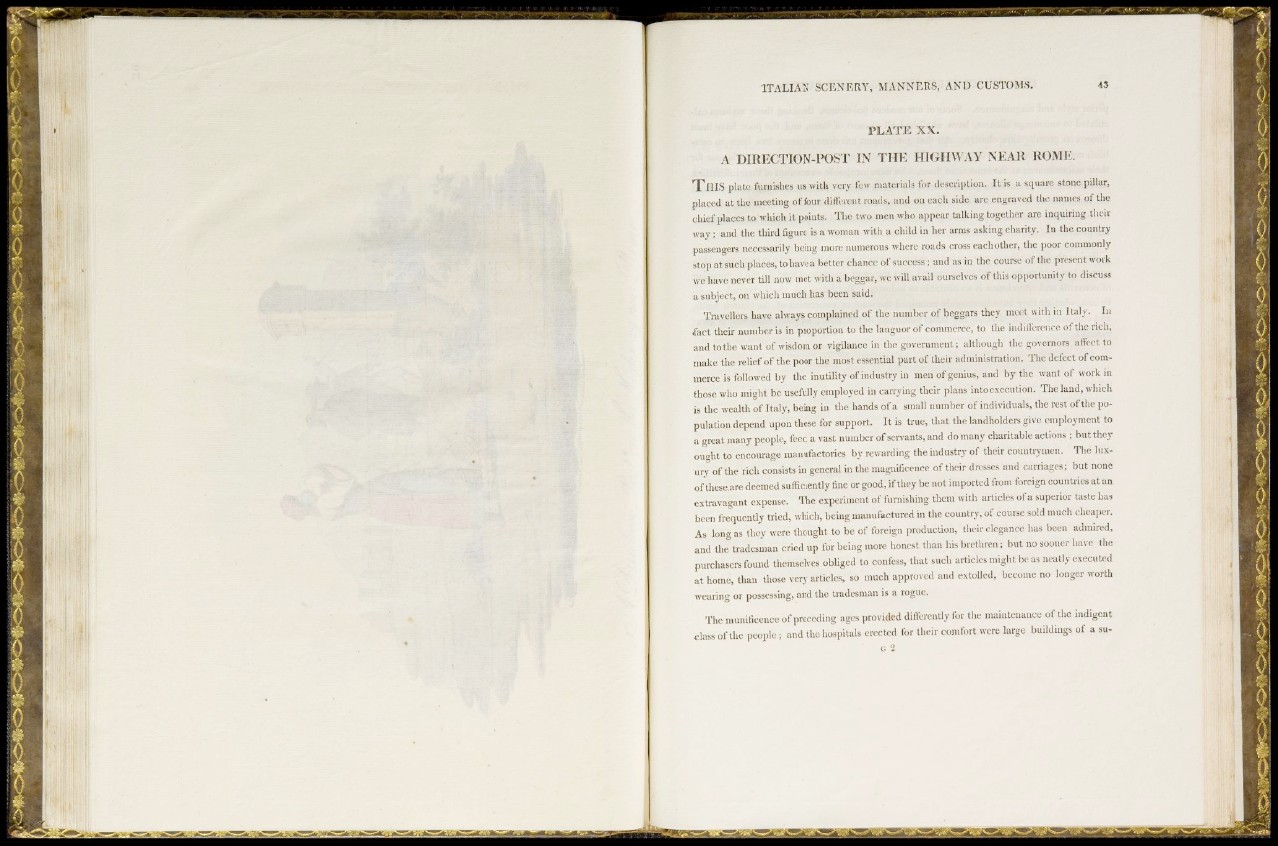
•ITALIAN SCENERY, MANNERS , AND CUSTOMS.
PLATE XX.
A DIRECTION-POST IN THE HIGHW AY NEAR ROME.
T H I S plate fumlshes us ivitU very lew materials for description. It is a square stone pillar,
placed at the meeting of four difierent roads, and on each side are engraved the names of the
chief places to which it points. The two men who appear talking together are inquiring their
way; and the third figure is a woman with a child in her arms asking charity. In the country
passengers necessarily being more numerous where roads cross cachother, the poor commonly
stop at such places, tohavea better chance of success; and as in the course of the present work
we have never till now met with a beggar, we will avail ourselves of this opportunity to discuss
a subject, on which nmch has been said.
Travellers have always complained of the number of beggars they meet with in Italy. In
fact their number is in proportion to the languor of commerce, to the indifierence of the rich,
and to the want of wisdom or vigilance in the government; although the governors affect to
make the relief of the poor the most essential part of their adminislration. The defect of commerce
is followed by the inutility of industry in men of genius, and by the want of work in
those who might be usefully employed in carrying their plans into execution. The land, which
is the wealth of Italy, being in the hands of a small number of individuals, the rest of the population
depend upon these for support. It is true, that the landholders give employment to
a great many people, feed a vast number of servants, and do many charitable actions ; but they
ought to encourage manufactories by rewarding the industry of their countrymen. The lu.xury
of the rich consists in general in the magnificence of their dresses and carriages; but none
of theseare deemed sufficiently fine or good, if they be not imported from foreign countries at an
extravagant expense. The experiment of furnishing them with articles of a superior taste has
been frequently tried, which, being manufactured in the country, of course sold much cheaper.
As long as they were thought to be of foreign production, their elegance has been admired,
and the tradesman cried up for being more honest than his brethren; but no sooner have the
purchasers found themselves obliged to confess, that such articles might be as neatly executed
at home, than those very articles, so much approved and extolled, become no longer worth
wearing or possessing, and the tradesman is a rogue.
The munificence of preceding ages provided differently for the maintenance of the indigent
class of the people; and the hospitals erected for their comfort were large buildmgs of a su-
B U S U S i H i t t i m i H B ^ i f i i i i i i i i mm